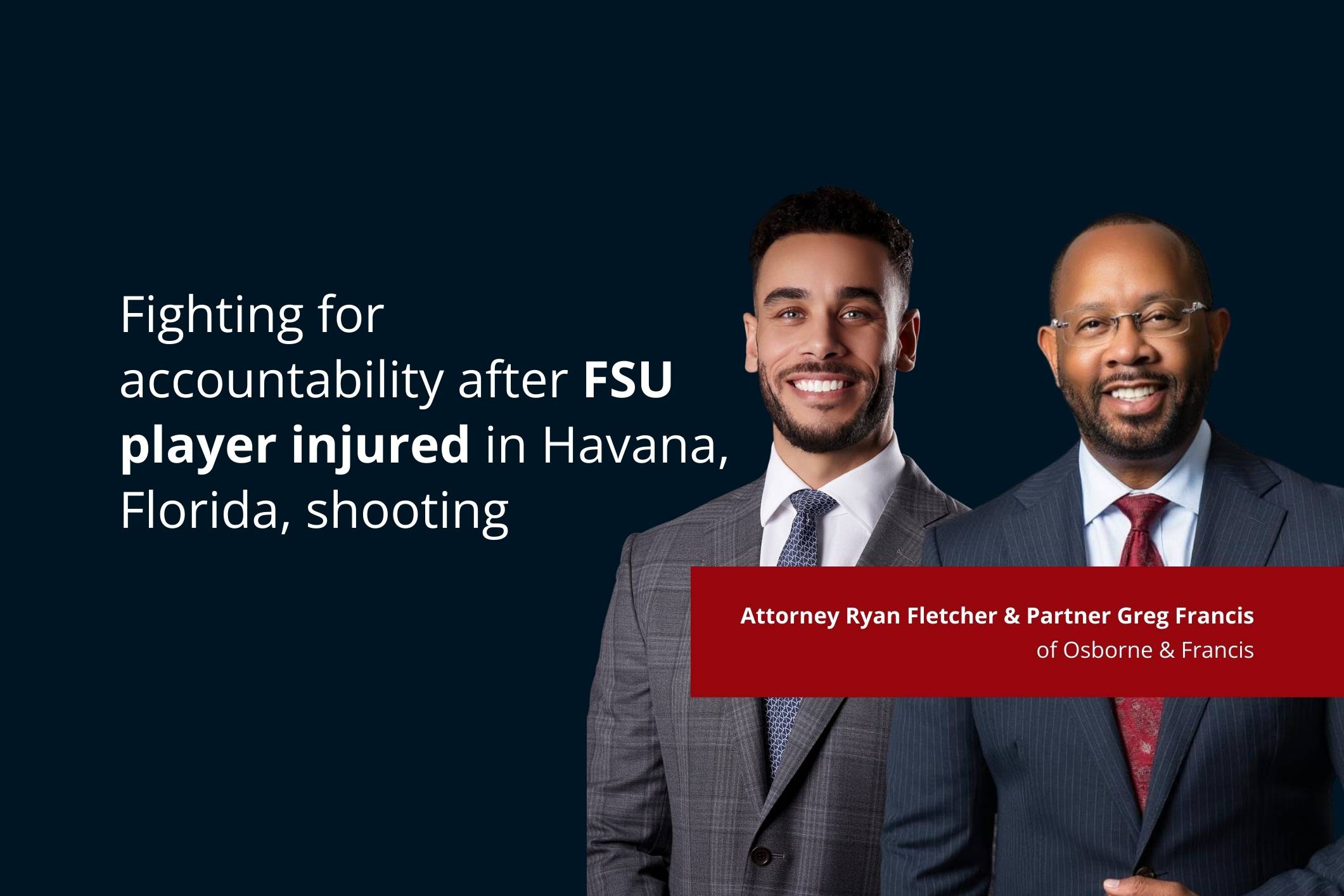The U.S. Department of Agriculture has supported agricultural, livestock, and forestry industries by providing loans for supplies, equipment, operational costs, and living expenses for decades. However, in practice, USDA loan officers have been known to exhibit prejudice when approving loans, leading to financial instability and other damages.
The federal government has created an opportunity for farmers, ranchers, and land owners, to recover compensation for unfair treatment by the USDA in the loan process, although not all USDA lending programs are eligible. The civil rights attorneys of Osborne & Francis are looking to speak with farmers, ranchers, and forest landowners who have experienced discrimination during the USDA loan process.
You can reach us at (561) 678-0156 or contact our offices in Boca Raton or Orlando to schedule a free case evaluation to discuss the legal options available to you. We can help you evaluate your claim to see if it would qualify for compensation under the Inflation Reduction Act and, if so, what your claim may be worth.
What is the Inflation Reduction Act (IRA)?
The Biden administration has made strides to alleviate the effects of inflation through a piece of legislation known as the Inflation Reduction Act. It was introduced in the House by Rep. Yarmuth of Kentucky. After multiple rounds of failed negotiations between Senate Majority Leader Schumer and the holdout Democratic vote, Senator Manchin of West Virginia, the IRA also passed the Senate.
It was then signed into law by President Biden in August of 2022. The Inflation Reduction Act has multiple agendas, including pursuing clean energy alternatives, reducing the deficit, and controlling prescription drug prices. It includes a provision for farmers who have been wrongfully denied or treated unfairly by the USDA loans program.
Historically speaking, the USDA has rejected or denied borrowers, set unfair loan terms, and demanded excessive collateral based on factors like an applicant’s race, gender, and sexuality. The law provides a chunk of money that farmers, ranchers, and forest landowners can apply for to secure financial relief from the impact of the discrimination they have faced.
Who is Eligible for Compensation?
There are a few criteria for borrowers looking to recover compensation for unfair treatment from the USDA. First, they must be either a farmer, rancher, or landowner. Second, the discrimination must have occurred by January 1st, 2021. Additionally, they must have been discriminated against on the basis of one or more specific characteristics. We do not have the official list yet, but based on the USDA’s own anti-discrimination policy, we anticipate that, at minimum, these categories will apply:
- Race
- Color
- National Origin
- Religion
- Sex
- Gender Identity (including Gender Expression)
- Sexual Orientation
- Disability
- Age
- Marital Status
- Family/Parental Status
- Income Derived from a Public Assistance Program
- Political Beliefs
- Retaliation from Previous Civil Rights Activity
Finally, they must have suffered financial, emotional, or physical harm as a result of this discrimination. For example, a farmer who was denied a USDA loan for seeds because he is Hispanic may be forced only to plant two-thirds of the crop he needs to, drastically cutting into his profit margins and jeopardizing his financial stability. As a result, he may have no choice but to downsize his farm by selling off parcels of land or equipment. These losses can potentially be compensated in a civil rights lawsuit.
Which Lending Programs the IRA Discrimination Financial Assistance Compensates
Certain USDA Loans Qualify Under the IRA
Farmers, ranchers, and forest landowners who experienced discrimination while requesting a Direct Farm Service Agency (FSA) Farm loan offered by the USDA qualify to make a claim for compensation. However, not all types of USDA loans are eligible. Loans that are not related to farms, such as housing loans, don’t qualify under the IRA for potential reimbursement.
Loans from Private Lenders May Be Eligible for Compensation
If you experienced discrimination while securing an FSA-guaranteed loan from a private lender, we anticipate that this type of situation will qualify for compensation under the IRA. FSA-guaranteed loans may be offered to borrowers who don’t otherwise meet the standards of the private institution they are attempting to secure a loan from. Farmers, ranchers, and forest landowners who have been discriminated against while securing a non-FSA-guaranteed loan from a private lender are most likely not covered under the IRA’s provisions for Discrimination Financial Assistance.
How Much Financial Assistance is Available?
As a part of the Inflation Reduction Act, Congress appropriated $2.2 billion dollars for farmers, ranchers, and forest landowners who can prove that they suffered damages as a result of being discriminated against by the USDA. The cap on compensation for individual claims is $500,000.
That being said, we don’t know exactly how many claims there will be, and it is possible that the number of funds set aside thus far will be insufficient. In that case, Congress may choose to appropriate more funding. Another option is that the USDA will offer a pro-rata share for each claim. In effect, that means that they could slash the amount of compensation they offer individual borrowers as long as it is by the same percentage.
For example, that could mean that individual plaintiffs receive only 50% of what their settlement was actually valued at if the funding is insufficient. In order to secure the compensation you deserve, it is in your best interest to hire a civil rights attorney to negotiate on your behalf and provide a persuasive argument for maximum compensation.
How Can Osborne & Francis Help You?
At Osborne & Francis, we make it a point to put our clients’ needs first. That means that you can expect personalized attention, clear communication, and outstanding results. We take pride in our track record of excellence, which includes a 1.25 billion dollar settlement for Black farmers who had been subject to discrimination by the USDA.
Our team is prepared to go above and beyond to ensure that you receive a fair settlement that is reflective of your damages. After nearly a decade in business, we have developed a reputation for a detail-oriented approach that relies on a strong work ethic. We offer the individual attention of a smaller firm and the resources of a larger firm, giving your claim the advantage.
Contact Osborne & Francis Today to Learn More
Many farmers, ranchers, and forest landowners depend on USDA loans to sustain their operations. They should be able to expect fair treatment from USDA loan officers. Unfortunately, the USDA has repeatedly engaged in discriminatory lending practices that have led to significant financial consequences for USDA borrowers.
The civil rights lawyers of Osborne & Francis won’t let that stand. We are prepared to take action on your behalf by calculating the value of your damages and then proving their connection to the discrimination you experienced. Our team is not afraid to take your USDA discrimination claim to trial if that’s what is required to secure you a settlement that accurately reflects your damages.
As personal injury lawyers, we have represented a number of clients at trial, and we are prepared to do the same for you. Our team will tenaciously pursue compensation for your damages, as we understand that your settlement could dictate your family’s financial future for years to come. You can reach us at (561) 678-0156 or contact our offices in Boca Raton or Orlando to schedule a free case evaluation to learn more about what our team can do for you.
.avif)













.avif)

.avif)
.svg)




